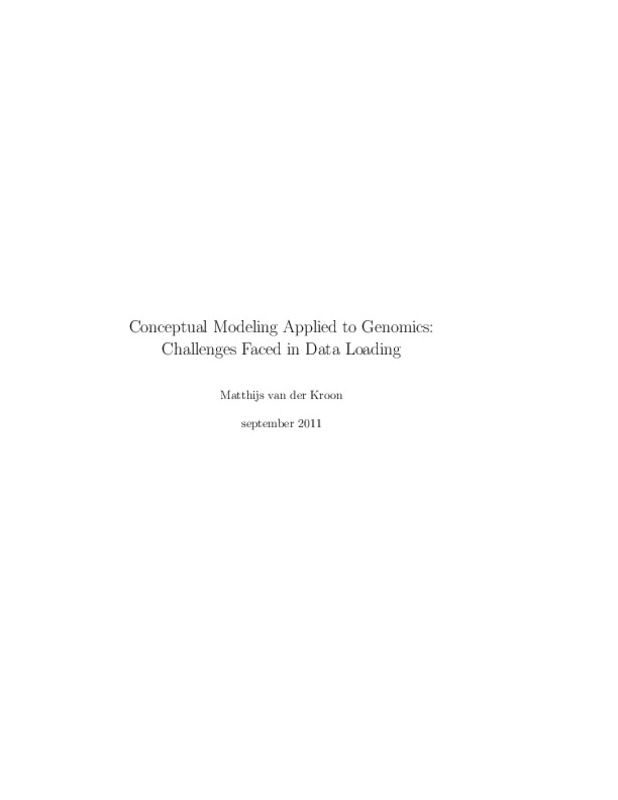JavaScript is disabled for your browser. Some features of this site may not work without it.
Buscar en RiuNet
Listar
Mi cuenta
Estadísticas
Ayuda RiuNet
Admin. UPV
Conceptual Modeling Applied to Genomics: Challenges Faced in Data Loading
Mostrar el registro completo del ítem
Van Der Kroon ., M. (2011). Conceptual Modeling Applied to Genomics: Challenges Faced in Data Loading. Universitat Politècnica de València. http://hdl.handle.net/10251/16993
Por favor, use este identificador para citar o enlazar este ítem: http://hdl.handle.net/10251/16993
Ficheros en el ítem
Metadatos del ítem
| Título: | Conceptual Modeling Applied to Genomics: Challenges Faced in Data Loading | |||
| Autor: | Van Der Kroon ., Matthijs | |||
| Director(es): | ||||
| Entidad UPV: |
|
|||
| Fecha acto/lectura: |
|
|||
| Resumen: |
Todays genomic domain evolves around insecurity: too many imprecise concepts, too much information to be properly managed. Considering that conceptualization is the most exclusive human characteristic, it makes full sense ...[+]
|
|||
| Palabras clave: |
|
|||
| Derechos de uso: | Reconocimiento - No comercial - Sin obra derivada (by-nc-nd) | |||
| Editorial: |
|
|||
| Titulación: |
|
|||
| Tipo: |
|







